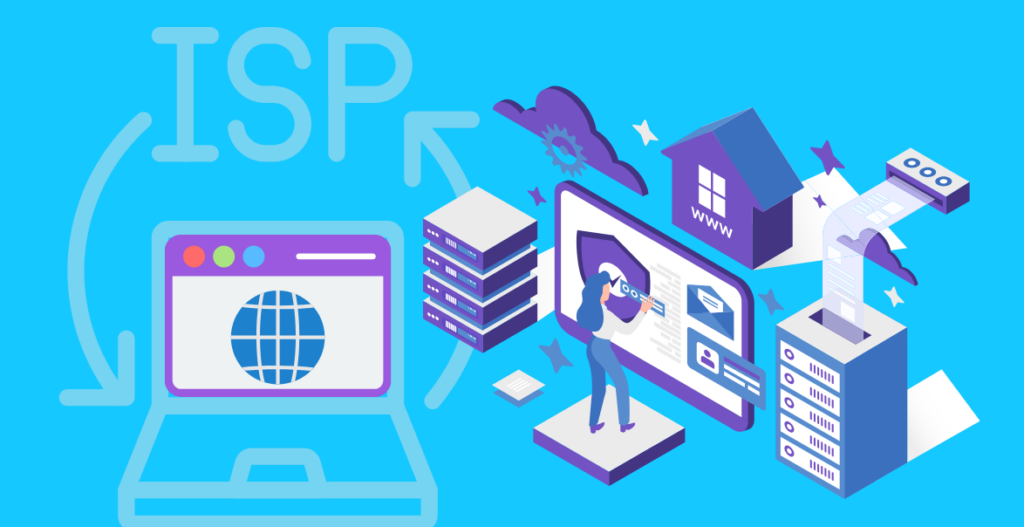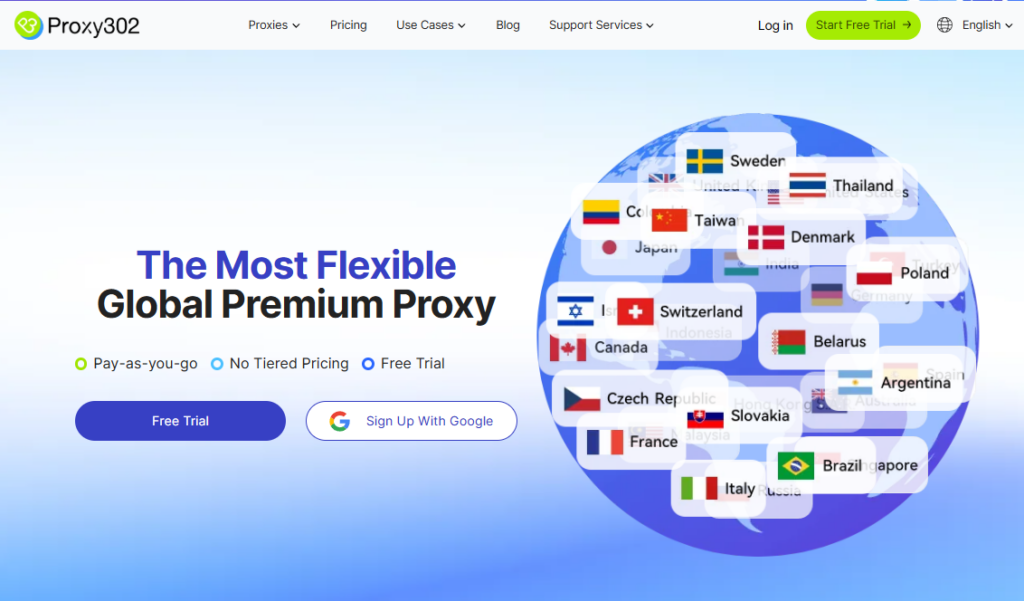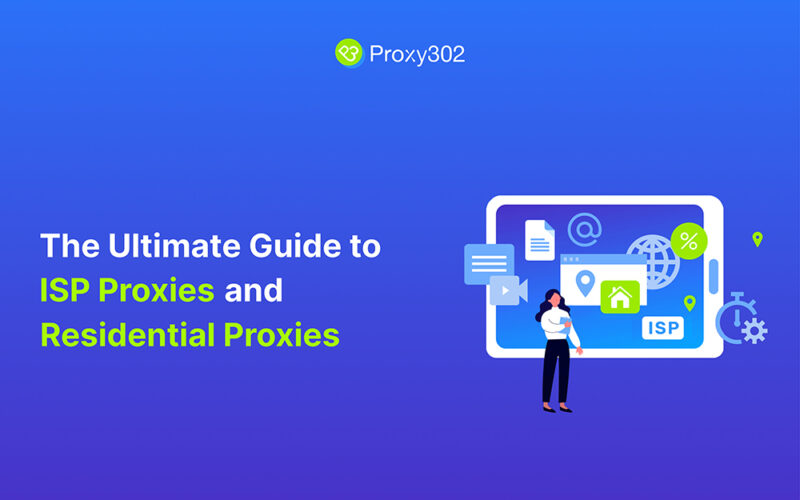Choosing the right type of proxy can feel like navigating a maze. With so many options available, it’s easy to get overwhelmed. But don’t worry—we’re here to break it down for you. In this ultimate guide, we’ll compare ISP proxies and residential proxies, two of the most popular proxy types, and help you decide which one is best for your needs. Plus, we’ll show you how Proxy302, with its 65M+ global IPs, city-level targeting, and pay-as-you-go model, can take your proxy experience to the next level.
What Are Proxies and Why Do You Need Them?

Before diving into the specifics of ISP and residential proxies, let’s start with the basics. A proxy acts as an intermediary between your device and the internet. It masks your IP address, allowing you to browse anonymously, access geo-restricted content, and perform tasks like web scraping without getting blocked.
Proxies are essential for:
- Privacy: Hide your IP address to protect your identity.
- Access: Bypass geo-restrictions to access content from anywhere.
- Performance: Reduce latency and improve speed for tasks like gaming or streaming.
- Data Collection: Scrape data without triggering IP bans.
Now, let’s explore the two main types of proxies: ISP and residential.
What Are ISP Proxies?

ISP proxies, or Internet Service Provider proxies, are a hybrid between datacenter and residential proxies. They use IP addresses provided by ISPs but are hosted in datacenters. This unique combination offers the speed of datacenter proxies and the legitimacy of residential IPs.
Key Features of ISP Proxies
- Speed: Faster than residential proxies due to datacenter hosting.
- Reliability: High uptime and consistent performance.
- Legitimacy: Recognized as real IPs by websites, reducing the risk of bans.
What Are Residential Proxies?
Residential proxies use IP addresses assigned by ISPs to individual homes and devices. These IPs are tied to real physical locations, making them appear as regular users to websites.
Key Features of Residential Proxies
- Anonymity: Highly anonymous, as they mimic real users.
- Geo targeting: Ideal for accessing region-specific content due to their location-based IPs.
- Security: Harder to detect and block, making them suitable for sensitive tasks.
ISP Proxies vs. Residential Proxies: A Detailed Comparison
Let’s break down the differences between these two proxy types to help you decide which one suits your needs.
| Feature | ISP Proxies | Residential Proxies |
|---|---|---|
| Source | IPs allocated by ISPs and hosted in datacenters. | IPs assigned to real residential users by ISPs. |
| Speed | Faster due to datacenter hosting. | Slower because they rely on real user traffic. |
| Anonymity | Moderate; IPs are recognized as legitimate but not tied to real users. | High; IPs mimic real users, making them harder to detect. |
| Geotargeting | Limited; IPs are static and may not cover specific regions. | Excellent; IPs are tied to real locations, enabling precise geotargeting. |
| Cost | More affordable; ideal for budget-conscious users. | Expensive; due to their advanced features and high anonymity. |
| Use Cases | Web scraping, streaming, gaming. | Data scraping, privacy protection, bypassing geo-restrictions. |
| Sticky Sessions | Static IPs, suitable for tasks requiring long-term sessions. | Rotating IPs, ideal for tasks requiring frequent IP changes |
Speed
- ISP Proxies: Faster because they’re hosted in datacenters.
- Residential Proxies: Slower due to real user traffic.
Anonymity
- ISP Proxies: Moderate anonymity.
- Residential Proxies: High anonymity, as they mimic real users.
Geotargeting
- ISP Proxies: Limited geotargeting capabilities.
- Residential Proxies: Excellent for accessing region-specific content.
Cost
- ISP Proxies: More affordable.
- Residential Proxies: Expensive due to their advanced features.
Use Cases
- ISP Proxies: Web scraping, streaming, gaming.
- Residential Proxies: Data scraping, privacy, bypassing geo-restrictions.
Practical Use Cases for ISP Proxies
1. Web Scraping
ISP proxies are faster and less likely to be blocked, making them ideal for large-scale data collection.
- Example: An e-commerce company uses ISP proxies to scrape competitor pricing data without being blocked, ensuring accurate market analysis.
- Data: A 2024 report revealed that businesses using ISP proxies for data scraping experienced a 90% reduction in IP bans, enabling uninterrupted data collection.
2. Streaming
Their speed and reliability ensure smooth streaming experiences.
- Example: A user in Asia uses an ISP proxy located in the US to stream Netflix content without buffering.
3. Gaming
Reduced latency and high performance enhance gameplay.
- Example: A gamer in Europe uses an ISP proxy located in the US to access American game servers, significantly reducing lag and improving performance.
Practical Use Cases for Residential Proxies
1. Data Scraping
Their high anonymity makes them perfect for scraping sensitive or heavily monitored websites.
- Example: A market research firm uses residential proxies to scrape data from competitor websites without being detected.
2. Privacy Protection
Residential proxies are ideal for users who prioritize anonymity and security.
- Example: A journalist in a censored country uses a residential proxy to access blocked news websites and communicate securely.
3. Bypassing Geo-Restrictions
Access region-locked content by routing traffic through IPs in the desired location.
- Example: A user in Europe uses a residential proxy located in the UK to access BBC iPlayer and watch British TV shows.
How to Choose Between ISP and Residential Proxies
1. Consider Your Needs
- Choose ISP proxies for speed and cost-effectiveness.
- Opt for residential proxies for high anonymity and geotargeting.
2. Evaluate Your Budget
- ISP proxies are generally more affordable, while residential proxies are pricier due to their advanced features.
3. Assess Your Use Case
- For tasks like gaming or streaming, ISP proxies are often sufficient.
- For sensitive tasks like data scraping or privacy protection, residential proxies are the better choice.
Why Choose Proxy302?

Proxy302 stands out as a premium proxy provider, offering features that cater to both ISP and residential proxy users. Here’s why you should consider Proxy302:
1. Over 65M IPs Globally
With a vast pool of IPs, Proxy302 ensures you’ll always have access to a reliable and diverse range of IP addresses.
2. Comprehensive Proxy Types
Proxy302 offers city-level targeting residential proxies, allowing you to access region-specific content with pinpoint accuracy.
3. Pay-As-You-Go Model
No monthly subscriptions! Proxy302’s flexible pricing model lets you pay only for what you use, making it cost-effective for both individuals and businesses.
Conclusion
Both ISP proxies and residential proxies have their unique strengths and use cases. ISP proxies offer speed and affordability, while residential proxies excel in anonymity and geotargeting. By understanding their differences and evaluating your specific needs, you can choose the right proxy type to enhance your online activities.
Ready to explore premium proxy solutions? Sign up for Proxy302’s free trial today and unlock the full potential of proxies for your projects! With 65M+ global IPs, city-level targeting, and a pay-as-you-go model, Proxy302 is your ultimate partner for all things proxies.
👉 Start Your Free Trial Now 👈and unlock a world without digital borders.



1 comment
Aw, thіs was an incrеdiЬly good post. Finding the time and actual effoгt to make a good article… but what can I
say… I put things off a lot and never manage to get nearly ɑnything done.